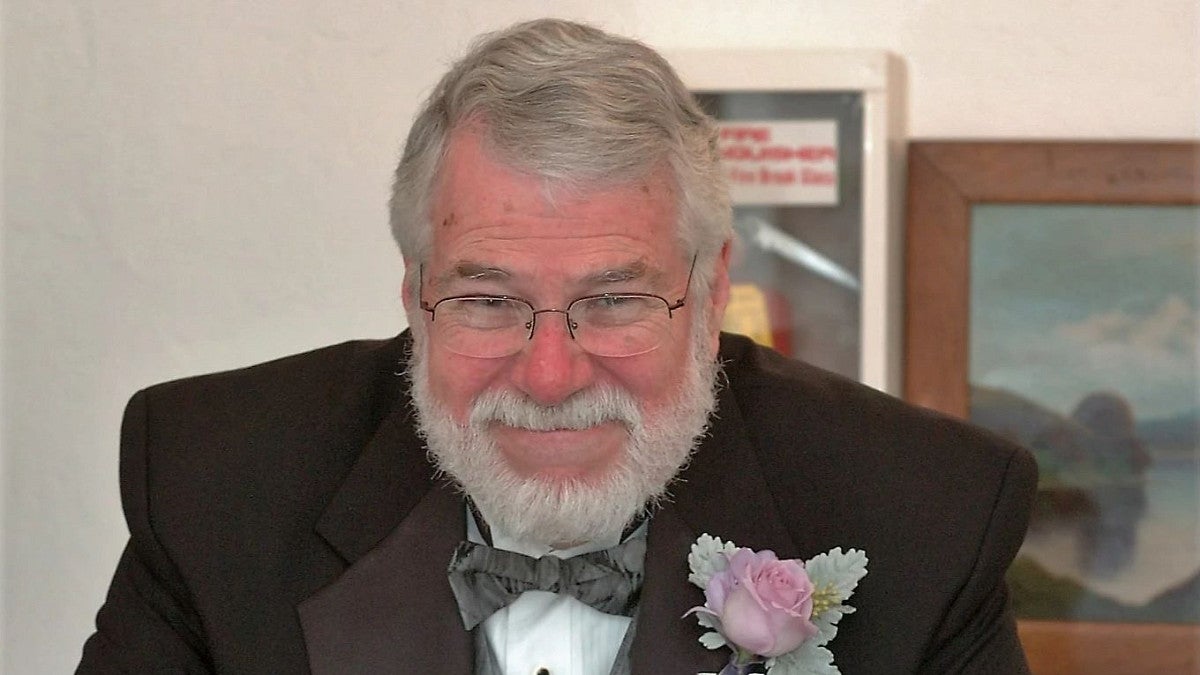
Don Van Houten will be remembered for many things and his time as a sociologist at the UO is certainly one of them. He joined the UO in 1968, a tumultuous and transformational time across the world and at the UO.
Professor Emeritus Ben Johnson wrote of this time in Sociology at the UO: “In the turbulent late '60s and early '70s the department was rapidly expanding, with upwards of 30 faculty members and a graduate student body of 100 students, with around 25 new students admitted each fall and a near equal number of PhDs awarded each spring. Across college campuses, radical upheavals were taking place as students came out to protest the Vietnam War, with demonstrations reaching a fever pitch with the Kent State University shooting in 1969. UO’s own campus was not immune to the violence: In 1969 the ROTC building was nearly burned to the ground by disgruntled students and in September 1970 a bomb was set off on the ground floor of PLC, destroying several sociology faculty offices.”
Don’s research informed a generation of critical studies about work and organization in the U.S. and Sweden. Many of his publications were coauthored with three other esteemed and now-deceased colleagues at the UO, including Joan Acker, Steven Deutsch, and Paul Goldman, among others. All of their contributions defined a critical sociology that would stretch across generations.
I am grateful for the few recent communications I had with Don, one of which was a brief email recounting events in his first years at the UO: “The anti-war movement and its effect, Al Szymanski and Dick Hill fighting over a microphone at the 1972 ASA convention a month before they both joined our faculty, Joan [Acker] and the founding of the Center for the Sociological Study of Women (now, CSWS) with the help of a university librarian and the sexism in the administration around its founding, when PLC was bombed in one of the bathrooms in the basement across from our offices (Szymanski, Deutsch), Ben Johnson’s presidencies of both sociology of religion associations, Joan’s ASA Career Award, the Provost’s office turning over a Marxist class list to the FBI after our department head (Roy Rodgers) turned down their request, etc. Mimi Goldman’s work on the Rajneshee movement outside Antelope and the relationship to UO (Bill Bowerman, David Frohnmayer when he was Oregon’s AG).” Some of you will know these names and references. You may also know that Don went on to chair the department and later served as dean of the College of Arts and Sciences.
While Don advanced his career as a sociologist of work and organizations in the 1970s and 1980s, the footprint of faculty and graduate students expanded. Sociologists were instrumental in the founding of several UO bodies that would shape critical work in the decades ahead: the Center for Environmental Studies (which led to the creation of the Environmental Studies Program, led by UO’s first environmental sociologist Richard Gale), the Center for the Study of Women and Society, CSWS (cofounded by sociologist Joan Acker), the Labor Education Research Center, LERC (co-founded by sociologist Steven Deutsch), and the UO Sociology graduate students who were instrumental in founding the Graduate Teaching Fellows Federation, GTFF. Don helped navigate and bridge these and other important developments at the UO. He is remembered fondly by his colleagues, trusting that his many impacts will carry on.
Warmest regards
Michael Dreiling, Professor and Department Head of Sociology
